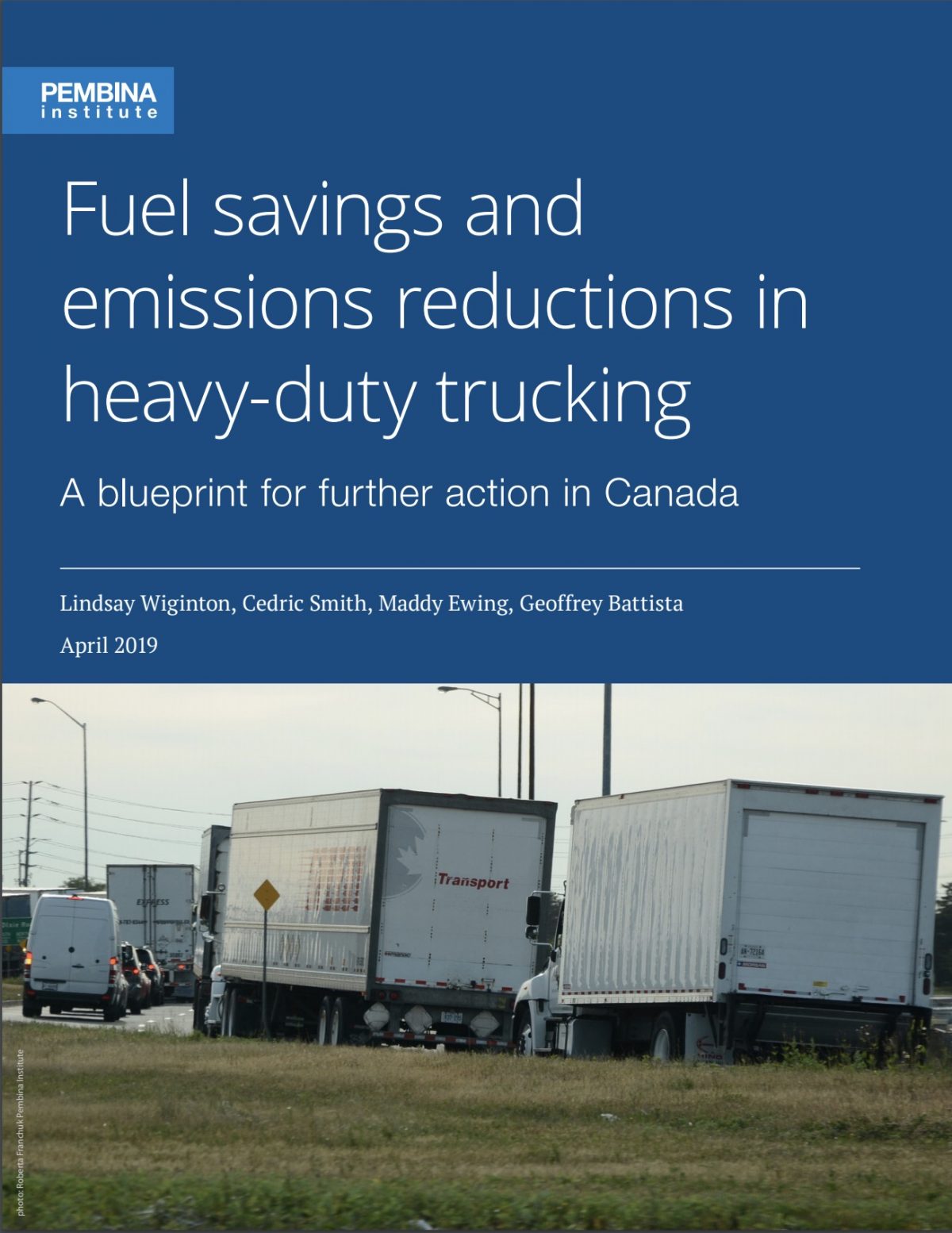Fuel Savings and emissions reductions in heavy-duty trucking: a blueprint for further action in Canada is the third in a series on freight emissions from the Pembina Institute, co-funded by Metcalf and the Echo Foundation.
In this report, authors Lindsay Wiginton, Cedric Smith, Maddy Ewing, and Geoffrey Battista offer an overview of the heavy-duty freight industry, including current technology and fuel options available across the country before moving on to their main theme, examining progress on the Pan-Canadian Framework on Clean Growth and Climate Change (PCF) commitments in heavy-duty trucking and presenting a blueprint for the federal government to accelerate its progress. Established in 2016, the PCF is the country’s first truly national plan on climate change and clean growth. It presents a comprehensive strategy to reduce greenhouse gases (GHG) emissions and touches on every sector, including transportation, setting out several commitments to support cleaner growth in the freight industry.
While the authors’ make 11 recommendations to advance the PCF with respect to heavy-duty trucking, they highlight four immediate actions that could be taken including:
- identifying major corridors along which to invest in publicly-funded zero-emissions heavy-duty refuelling/recharging stations targeted at long haul operations;
- creating of a system by which life-cycle emissions of low- and zero-emission HDV technologies can be assessed;
- undertaking a project for the creation of a national zero-emissions heavy-duty vehicle infrastructure development strategy, in concert with utilities and the hydrogen industry; and
- studying and sharing information about viable short- and medium-term clean heavy-duty trucking technologies and inform government on actions needed to support the transition.
As Pembina has noted in its two previous reports, freight transportation accounts for 10.5% of Canada’s greenhouse gas (GHG) emissions, the majority of which comes from heavy-duty trucks. While shipping goods by heavy-duty trucking continues to grow, its vehicle efficiency gains are few compared to those of light vehicles. The result is that emissions from freight are expected to bypass emissions from passenger movement by 2030 in Canada. Thus, supporting a shift to a cleaner freight sector is essential to any climate action plan, and the federal government has an important role to play in making that shift.


